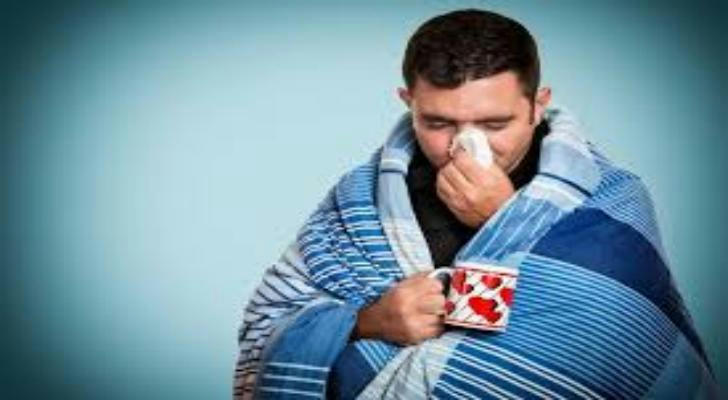Cold and Flu Season: How to Boost Your Immune System and Stay Healthy

As the temperatures drop and the days get shorter, the risk of getting sick increases. But don't let the common cold get the best of you. By boosting your immune system and taking a few simple precautions, you can stay healthy and happy all season long. In this article, we'll share our top tips for keeping the common cold at bay.
The common cold is a complex and multifaceted illness, influenced by a combination of genetic, environmental, and lifestyle factors. But what exactly causes the common cold, and how can we use science to prevent and treat it? In this in-depth exploration, we'll delve into the latest research and discoveries.
Common Symptoms of the Cold
The common cold can manifest in different ways, but some of the most common symptoms include:
- Runny nose and congestion
- Sneezing and coughing
- Headache and fatigue
- Sore throat and hoarseness
- Fever and chills
- Body aches and pains
- Loss of appetite and taste
- Mild diarrhea and nausea
In some cases, the cold can also lead to secondary infections, such as sinusitis, bronchitis, and pneumonia.
Prevention Strategies
While there's no surefire way to completely avoid getting a cold, there are some steps you can take to reduce your risk:
- Wash your hands frequently: Cold viruses can enter your body through your eyes, nose, and mouth, so keeping your hands clean is essential.
- Avoid close contact with people who are sick: Try to maintain a distance of at least 3 feet from someone who's infected.
- Keep surfaces clean: Regularly clean and disinfect surfaces that are frequently touched, such as doorknobs, light switches, and countertops.
- Get enough sleep: Lack of sleep can weaken your immune system, making you more susceptible to illness.
- Exercise regularly: Regular physical activity can help boost your immune system.
- Eat a healthy diet: Focus on consuming plenty of fruits, vegetables, whole grains, and lean proteins to keep your immune system strong.
What to Do If You Get Infected
If you do get infected with a cold virus, there are some steps you can take to alleviate your symptoms and help your body recover:
- Stay hydrated: Drink plenty of fluids, such as water, tea, and soup, to help thin out mucus and soothe a sore throat.
- Rest: Get plenty of rest to help your body fight off the infection.
- Use over-the-counter medications: Over-the-counter medications, such as pain relievers, decongestants, and antihistamines, can help alleviate symptoms.
- Try steam inhalation: Inhaling steam from a bowl of hot water or a steam humidifier can help loosen mucus and ease congestion.
- Gargle with salt water: Gargling with warm salt water several times a day can help soothe a sore throat.
Common Medications for the Cold
Some common medications for the cold include:
- Pain relievers: Acetaminophen (Tylenol) and ibuprofen (Advil, Motrin) can help alleviate headaches, fever, and body aches.
- Decongestants: Pseudoephedrine (Sudafed) and phenylephrine (Sudafed PE) can help relieve nasal congestion.
- Antihistamines: Diphenhydramine (Benadryl) and loratadine (Claritin) can help alleviate sneezing, runny nose, and itchy eyes.
- Cough suppressants: Dextromethorphan (Robitussin) can help relieve coughing.

Conclusion
The common cold is a viral infection that can cause a range of uncomfortable symptoms. While there's no cure for the cold, there are steps you can take to reduce your risk of getting infected and alleviate symptoms if you do get sick. By practicing good hygiene, getting enough sleep, and eating a healthy diet, you can help keep your immune system strong and reduce your risk of illness. If you do get infected, over-the-counter medications and home remedies can help alleviate symptoms and support your body's recovery.
When a child comes down with a fever and cold symptoms, it can be a worrying time for parents and caregivers. While most fevers and colds are harmless and can be managed at home, there are some important things to keep in mind to ensure your child's health and safety.
First and foremost, it's important to monitor your child's symptoms closely. Take their temperature regularly and watch for signs of dehydration, such as dry mouth, sunken eyes, and infrequent urination. If your child's fever is above 104°F (40°C) or they are experiencing severe symptoms, such as difficulty breathing or persistent vomiting, seek medical attention immediately.
In terms of treatment, there are several steps you can take to help your child feel more comfortable and promote recovery.
Here are some common strategies:
- Hydration: Encourage your child to drink plenty of fluids, such as water, soup, and diluted fruit juice. This can help prevent dehydration and soothe a sore throat.
- Rest: Encourage your child to rest and get plenty of sleep. This can help their body fight off the infection and promote recovery.
- Pain relief: Over-the-counter pain relievers, such as acetaminophen (Tylenol) or ibuprofen (Advil), can help alleviate fever, headache, and body aches. Be sure to follow the dosage instructions carefully and avoid giving aspirin to children under the age of 18.
- Humidification: Using a cool-mist humidifier can help soothe a sore throat and relieve congestion.
- Saline drops: Saline drops can help clear a stuffy nose and relieve congestion.
It's also important to note that antibiotics are not effective against viral infections like the common cold. In fact, overuse of antibiotics can lead to antibiotic resistance and other health problems. So, unless your child's symptoms are severe or persist for more than a week, it's best to avoid antibiotics and focus on supportive care.
In summary, when it comes to treating a child's fever and cold symptoms, it's important to monitor their symptoms closely, encourage hydration and rest, use pain relief as needed, and avoid antibiotics unless necessary. By following these strategies, you can help your child feel more comfortable and promote a speedy recovery.
